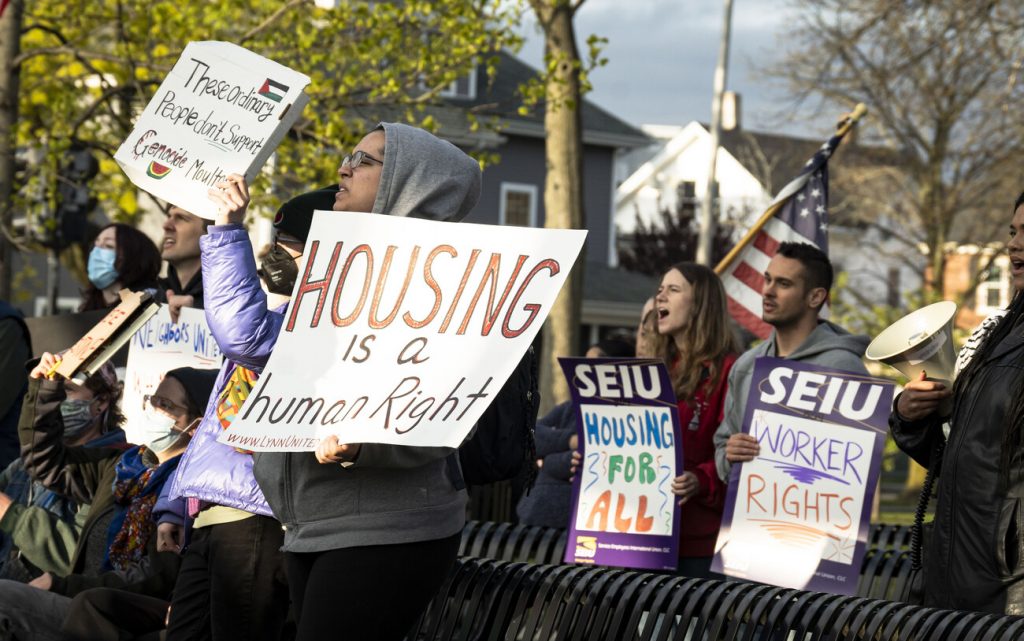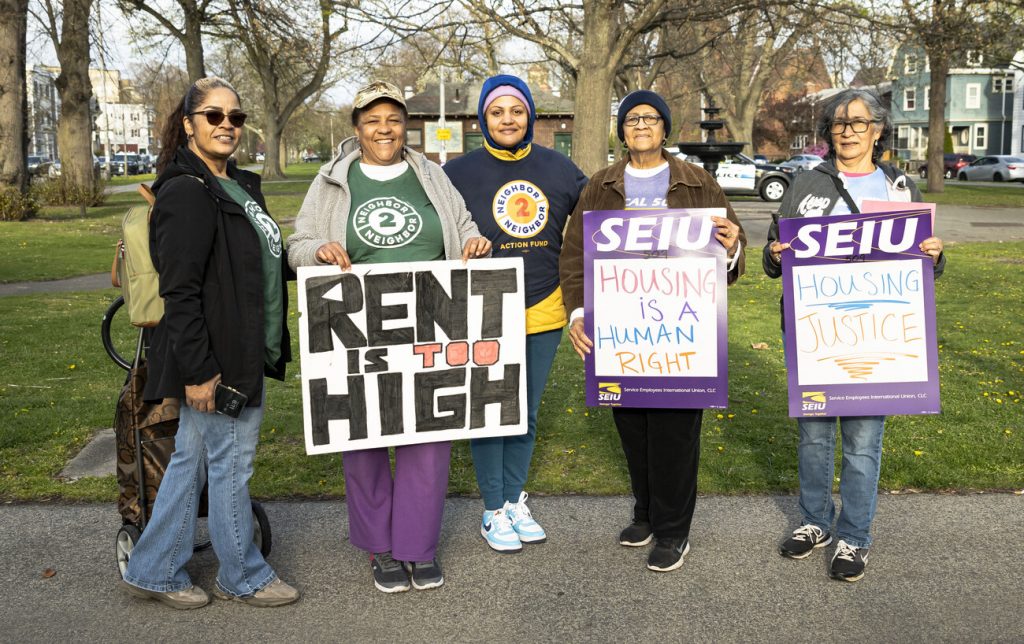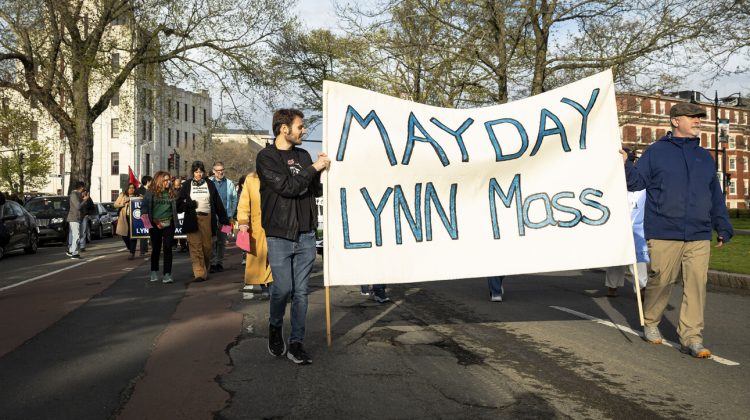LYNN — To mark International Workers’ Day, or May Day, the New Lynn Coalition hosted a march from the steps of City Hall to the South Common bandstand.
Jeff Crosby, a co-founder and former executive director of the coalition, addressed the crowd of around 100 people on the steps of City Hall, informing them about the history of May Day.
“Back in 1886, they were fighting for an eight-hour day. Both some workers and some police were killed, four leaders of the unions were hung, even though it was proved later that they had no evidence against these four men,” Crosby said. “In 2006, some immigrant workers… started (May Day) again, and rejuvenated May Day and kept it going ever since.”
Crosby said the New Lynn Coalition is made up of 15 organizations, which strive to better the community and start conversations surrounding labor rights, food insecurity, education, housing affordability, health-care access, immigration justice, environmental sustainability, and racial equity.

“We always say we don’t care who you worship or how you worship, we don’t care if you’re union or non-union, we don’t care about the color of your skin, we don’t care about the language that you speak, we don’t care where you came from, we don’t care who you love. But, what we care about is that we as working-class people stand together to fight for each other and help each other,” Crosby said.
He continued, saying that the goal of the march was to shed light on the democracy citizens are living in today.
Crosby said that people should not only seek to defend the “imperfect” aspects of their democracy, but also to “expand” and “transform” it.
“We don’t have a democracy if 10 people can sit around a boardroom somewhere like General Electric and destroy thousands of jobs in our community. That’s not democracy, that’s minority rule,” Crosby said. “We don’t have a democracy when people in Wyoming get two votes in the Senate, California, with 65 times more people, also gets two votes. That’s not democracy, that’s minority rule. That was created to defend the slave states way back when, at the beginning of all this.”
He said it is up to American citizens to decide whether they want to make things better or worse, both in the United States and across the world.
“We don’t have to agree on the history of the area, we don’t have to agree on whatever things will be resolved in the long run, but we can believe that peace can only begin if we stop the slaughter of innocent people and civilians,” Crosby said, alluding to the Israel-Hamas war.
The group then marched to the bandstand, where leaders from local organizations in the coalition spoke.
Isaac Simon Hodes, the director of Lynn United for Change, talked about increased rents in the area. He said that people of all backgrounds are being pushed out of their homes because of the increases.
“Again and again and again, we’re seeing absentee landlords put profit before people, hurting our neighborhoods and our neighbors and our whole community with rent increases of 30%, 40%, 50%, or more,” Hodes said. “Far too many people end up getting pushed out of their homes, out of their whole community, before they even get a chance to organize and fight back.”

Hodes said that the state legislature needs to end the Commonwealth’s ban on rent control, and that the city’s government needs to bring back rent stabilization.
He then discussed the Israel-Hamas War, saying that more than 300,000 homes have been destroyed by Israel in attacks that have killed a huge amount of children and other civilians. Hodes said that these attacks are only possible due to the money and arms given to Israel by the American government.
“So let’s keep protesting and fighting for the human rights of Palestinian people, and doing everything we can to get a cease-fire and to end U.S. military support for Israel’s apartheid system,” Hodes said, to much applause.
Jacquelyn Fitzhugh, vice president of the coalition, spoke as well, discussing reparations for Black Americans.
“For over 400 years, black people have labored, building western economies without being fairly compensated. Their descendants — impoverished, destitute, and without housing. We have had to struggle to get the vote, housing, we’ve struggled for education. We have suffered through slavery, segregation, Jim Crow. We have been redlined, over-incarcerated, and unemployed. Our struggle today is for compensation,” Fitzhugh said. “My ask is that you will do more research on what reparations is about and ask your city councilors, your mayor, to start a reparations task force in Lynn.”

